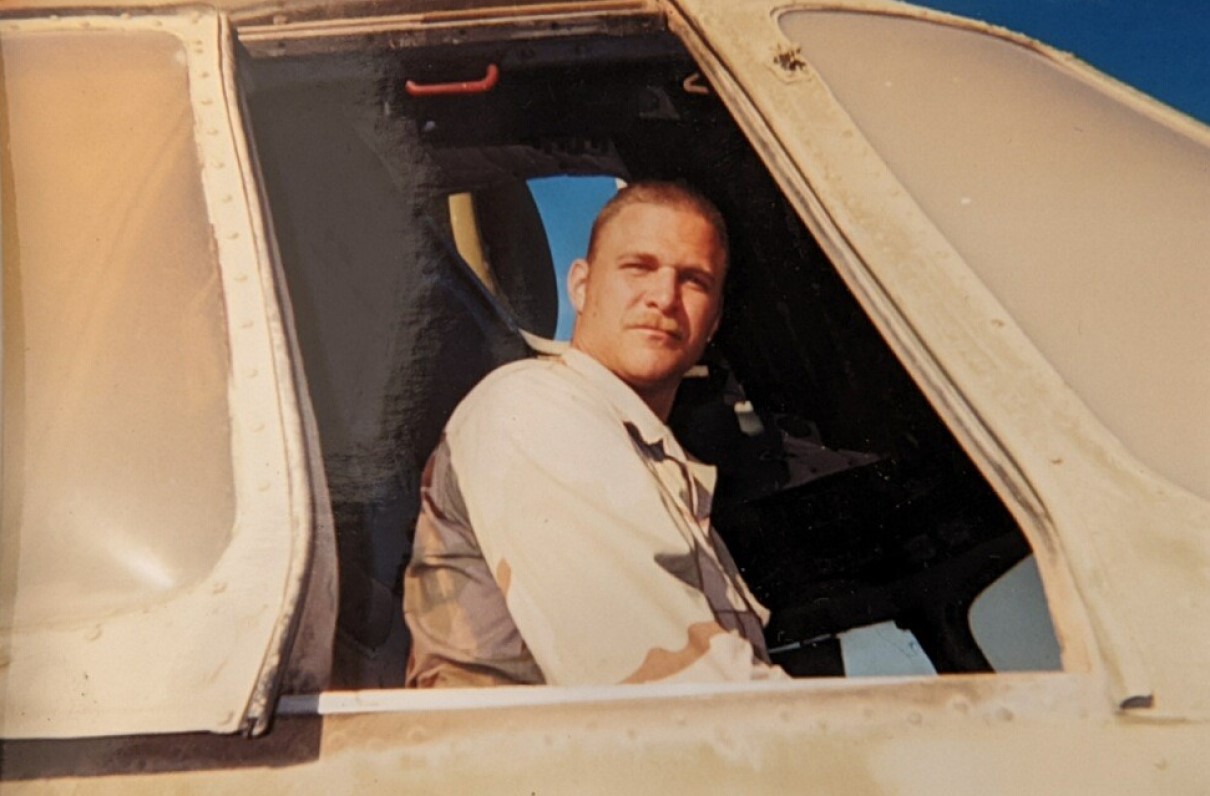Maj. Jason Stanley, a retired Air Force special operations pilot, passed away less than a year after being diagnosed with brain cancer. Just before his death, his glioblastoma was linked to burn pit exposures.
In a culture that prides itself on serving others and moving out to accomplish the mission, the uniform may come off, but the mentality never leaves. Jason carried that ethos with him as a medevac and contracted pilot for the military – tough it out and keep serving. He didn’t recognize his headaches and nosebleeds as symptoms of a much deeper health issue.
[CALL TODAY: Ask Your Senators to Pass the Honoring Our PACT Act]
After he was misdiagnosed twice in Alabama, the Mayo system correctly diagnosed Jason with terminal glioblastoma. Jason and his spouse, Amelia, tried to figure out how this could have happened when Jason was in great physical shape and had no similar cancers in his family history. Then Amelia remembered the story of President Joe Biden’s son, Beau, and how he experienced the same cancer … and the pieces fell into place.
Jason’s first seizure was in June of last year, and his cognitive decline quickly followed. He began losing his ability to converse, operate a computer, or advocate for himself. Someone Americans relied on to protect our nation was now relying on family and friends because of VA’s legal speedbumps to have his conditions recognized. Without Amelia’s help, Jason would have been incapable of doing the work necessary to get the medical appointments scheduled, coordinate transportation, or get a claim filed.
Amelia described Jason as “very stoic and very proud. It was hard for him to ask for help from the VA.” The military culture taught him to “keeping going and press on, that’s a part of the mission.”
[RELATED: Veterans Groups Gather to Support Toxic Exposure Reform Bill]
When the Stanleys reached out to the VA, they found confusion, gaps, and delays getting into the VA system and receiving the care Jason deserved for his service. In addition to trying to care for Jason, Amelia was also working with him to navigate this process. Jason didn’t submit a claim when he separated from the service because in his view, a little hearing loss and back pain were nothing to complain about.
When reflecting on her experience with the VA, Amelia said, “I don’t want other veterans or retirees to have any additional barriers put in place … I want every servicemember to have access to care and know they were taken care of.”
Our nation asked enough of Jason. It shouldn’t have been his responsibility to know his service in Iraq, Afghanistan, Djibouti, and Uzbekistan put him at greater risk for illnesses linked to burn pit exposures. The increased training for medical providers, information campaigns to reach veterans, and studies stipulated in the Honoring Our PACT Act certainly could have helped Jason.
What would have helped this horrible situation most is if Jason already had a relationship with the VA and was receiving his care at the VA like so many Vietnam and Gulf War veterans. Without being tied into the VA system to receive suitable medical equipment and support, Amelia had to rig equipment to help get Jason in and out of bed, turning their bedroom into a makeshift hospital room.
Instead of having hospice and caregiver support through the VA for the last several months of Jason’s life, his son Harrison quit his job as an archeologist to come home and help his family.
[RELATED: MOAA’s Updated Caregiver Resources]
Jason was granted service connection, but delays from the complicated process caused unnecessary struggles in his final days. And his case is far from unique: Nearly 80% of burn pit claims are denied by the VA.
Jason’s accepted claim shouldn’t be the exception – it should be the rule. Veterans need the fast-tracking provided by the presumptive illnesses in the Honoring Our PACT Act.
The Honoring Our PACT Act is the bill veterans like Jason need. It cares for those who are still sacrificing for our nation and fundamentally changes how our nation responds to burn pit exposures. This bill offers health care and process reforms, and it recognizes the presumptive illnesses sought by MOAA and every other veterans group. The House has passed it, the president has said he will sign it, now our veterans and survivors look to our senators to act.
Your senators need to hear how important this bill is. Call your senators now and ask them to support the Honoring Our PACT Act when the bill comes up for a vote this month.
More Members Mean More Influence Over Our Health Care
Get involved and make sure your interests are addressed. Because the larger our voice is, the greater our impact will be.

